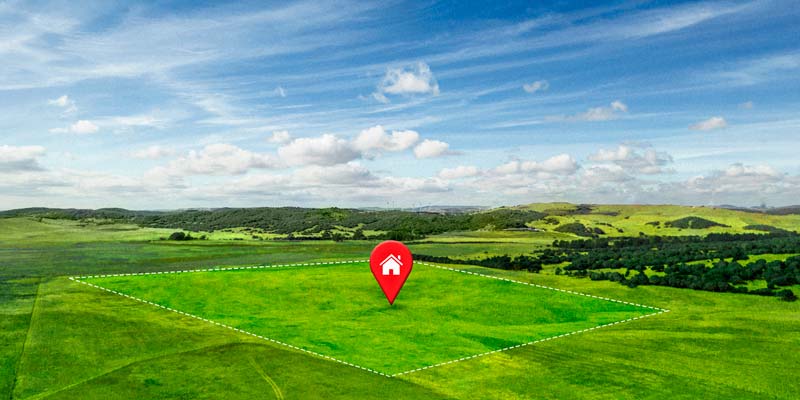When it comes to investing in real estate, Australia presents one of the most lucrative opportunities worldwide. The country’s expansive landmass, diverse landscapes, and stable economy make it an ideal location for buying land. Whether you’re looking for a piece of paradise to build your dream home, start a farming venture, or make a profitable investment, Australia has something to offer for everyone.
In this article, we’ll dive into everything you need to know about land for sale in Australia. From understanding the market trends to legal considerations and financing options, this guide is designed to help you make an informed decision.
Why Invest in Australian Land?
Australia’s real estate market is known for its resilience and growth potential. With a stable political environment, strong economic fundamentals, and a growing population, land in Australia is a sound investment choice. Whether you’re an Australian resident or an international investor, owning land in this country can provide significant long-term returns.
Moreover, Australia offers a diverse range of landscapes—from coastal regions and lush rainforests to vast outback areas and fertile agricultural land. This diversity means that there’s a piece of land to suit virtually any purpose, whether residential, commercial, or agricultural.
Understanding the Australian Land Market
Before diving into a land purchase, it’s crucial to understand the current trends and dynamics of the Australian land market. Over the past few years, Australia has seen significant growth in land prices, particularly in urban and suburban areas. However, there are still opportunities to find affordable land, especially in regional areas.
Urban land is in high demand, particularly in major cities like Sydney, Melbourne, and Brisbane. These areas tend to have higher prices due to the proximity to amenities, infrastructure, and employment opportunities. On the other hand, regional areas offer more affordable land prices and can provide excellent opportunities for investment, especially in regions that are expected to experience growth in the coming years.
Key Factors to Consider When Buying Land
When purchasing land in Australia, several factors need to be considered to ensure you’re making a wise investment:
- Location: Location is one of the most critical aspects of any real estate investment. Consider proximity to cities, infrastructure, schools, and healthcare facilities.
- Zoning Laws: Understanding the zoning laws of the area where you’re buying land is essential. Zoning dictates what you can and cannot do with the land.
- Utilities and Infrastructure: Ensure that the land has access to essential utilities such as water, electricity, and sewage systems. Proximity to roads and public transport can also be crucial.
- Land Size and Topography: The size and topography of the land will determine what you can build on it and how much it will cost to develop.
Different Types of Land Available in Australia
Australia offers a variety of land types, each suitable for different purposes. Here are some of the most common types of land available for sale:
- Residential Land: Ideal for building homes or subdivisions. Residential land is often located in urban or suburban areas.
- Agricultural Land: Perfect for farming, ranching, or agribusinesses. Australia’s agricultural land is some of the most fertile in the world.
- Commercial Land: Suitable for business developments, such as shopping centers, office buildings, or industrial parks.
- Rural Land: Ideal for those looking to escape the city and enjoy a peaceful, rural lifestyle. Rural land can also be used for farming or eco-tourism ventures.
Legal Considerations When Buying Land in Australia
Purchasing land in Australia comes with its own set of legal considerations. It’s essential to be aware of these to avoid any potential pitfalls:
- Foreign Investment Review Board (FIRB) Approval: If you’re a non-resident, you may need approval from the FIRB to purchase land in Australia.
- Title Search: Conduct a title search to ensure that the land you’re purchasing has a clear title and is free of any encumbrances.
- Environmental Regulations: Be aware of any environmental regulations that may affect the land, particularly if it’s in a protected area or subject to conservation laws.
- Building Permits and Zoning: Ensure that you understand the zoning laws and building permit requirements before purchasing land.
Financing Options for Purchasing Land
Financing the purchase of land in Australia can be done through various means, depending on your financial situation and investment goals:
- Traditional Bank Loans: Most Australian banks offer loans for purchasing land. However, the terms and conditions can vary depending on the type of land you’re buying.
- Private Lenders: Private lenders can offer more flexible terms, but they may come with higher interest rates.
- Seller Financing: In some cases, the seller may be willing to finance the purchase, allowing you to make payments directly to them over time.
- Self-Managed Super Fund (SMSF): If you have an SMSF, you can use it to purchase land, provided it complies with the fund’s investment strategy.
Top Regions in Australia for Buying Land
Australia is vast, and different regions offer varying opportunities for land investment. Here are some of the top regions to consider:
- Sydney, New South Wales: Sydney is Australia’s largest city and a prime location for residential and commercial land investments.
- Melbourne, Victoria: Known for its culture and arts, Melbourne offers a diverse range of land opportunities, particularly in the outer suburbs.
- Brisbane, Queensland: With its warm climate and growing economy, Brisbane is an attractive option for both residential and commercial land purchases.
- Adelaide, South Australia: Adelaide offers more affordable land options compared to other major cities, making it a great place for first-time investors.
- Perth, Western Australia: Perth’s booming economy, driven by the mining industry, makes it a hotspot for land investments, especially in the commercial sector.
The Process of Buying Land in Australia
Buying land in Australia involves several steps. Here’s a brief overview of the process:
- Research and Planning: Start by researching the type of land you want and its location. Consider your budget and long-term goals.
- Find a Real Estate Agent: A local real estate agent can help you navigate the market and find land that meets your criteria.
- Conduct Due Diligence: Before making an offer, ensure that you conduct a thorough investigation of the land, including title searches, zoning checks, and environmental assessments.
- Make an Offer: Once you’ve found the right piece of land, make an offer to the seller. This is typically done through your real estate agent.
- Legal Review and Settlement: After your offer is accepted, a legal review of the contract is conducted, followed by the settlement, where the title is transferred, and payment is made.
Risks and Challenges of Buying Land in Australia
Like any investment, buying land in Australia comes with its risks and challenges. Being aware of these can help you mitigate them:
- Market Volatility: The real estate market can be unpredictable. Prices can fluctuate, and demand can change, affecting the value of your land.
- Environmental Risks: Australia is known for its bushfires, floods, and other natural disasters. Ensure that the land you’re purchasing is not in a high-risk area.
- Regulatory Changes: Changes in zoning laws or environmental regulations can impact your ability to develop or use the land as intended.
- Financing Risks: Interest rates and loan terms can change, affecting your ability to finance the land purchase.
Tips for First-Time Land Buyers in Australia
If you’re new to buying land in Australia, here are some tips to help you navigate the process:
- Do Your Research: Understand the market, the area, and the type of land you’re interested in before making a decision.
- Get Professional Advice: Consult with real estate agents, lawyers, and financial advisors to ensure you’re making an informed choice.
- Start Small: If you’re unsure, consider starting with a smaller piece of land or a less expensive area to minimize risk.
- Think Long-Term: Land investment is typically a long-term commitment. Consider your long-term goals and how the land fits into them.
Conclusion
Buying land in Australia is a significant investment that can yield substantial returns if done correctly. With the right research, planning, and professional advice, you can find the perfect piece of land to meet your needs, whether for personal use or as a profitable investment. Remember to consider all the factors—from location and zoning laws to financing options and legal considerations—before making your purchase. By doing so, you can ensure that your investment in Australian land is a wise and rewarding one.

